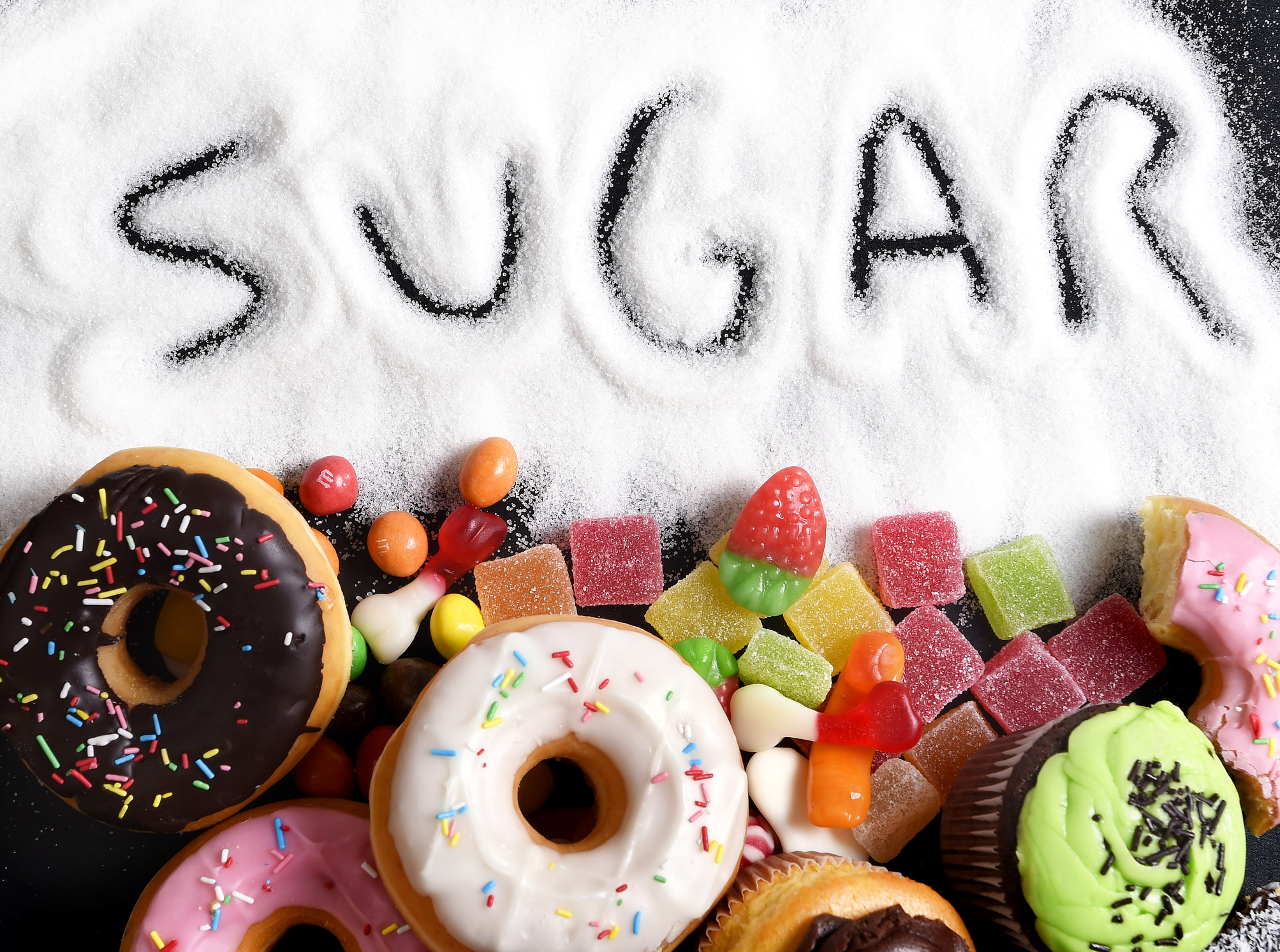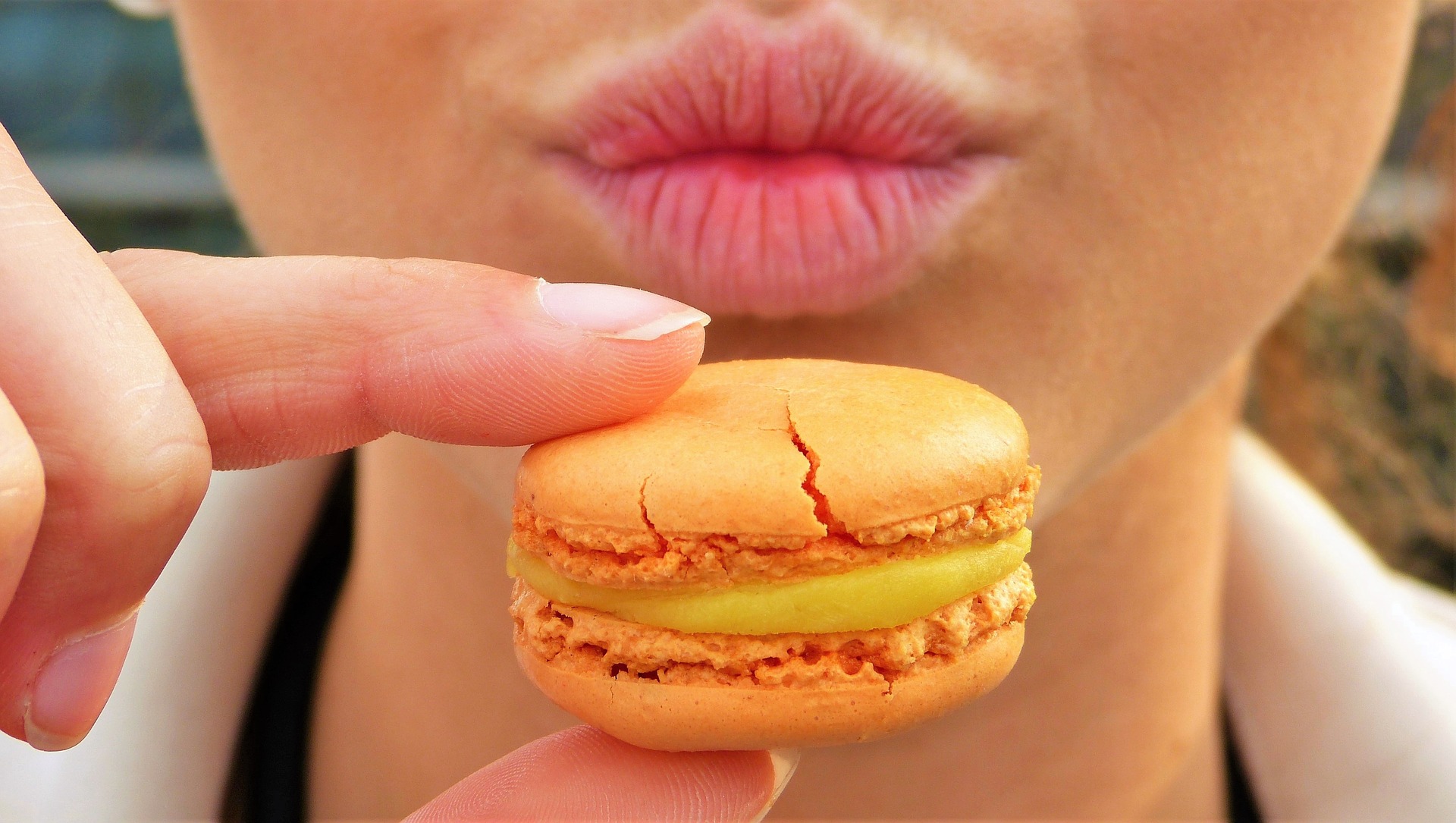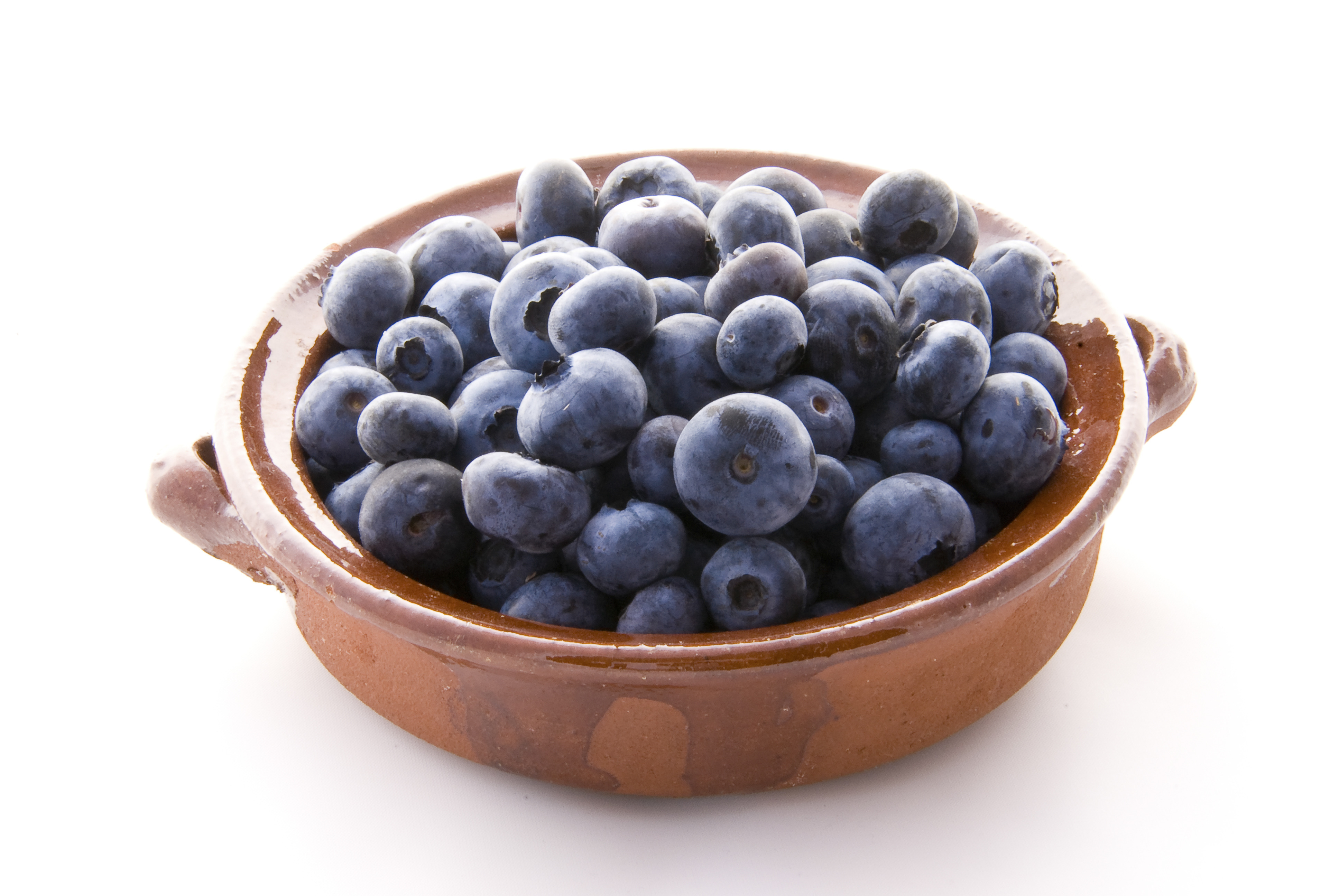Doughnut or blueberries? What is your choice?
Aug 10, 2017
Posted by: Monique Parker

Imagine I’m offering you a plate with a portion of blueberries and a chocolate-iced doughnut (or is it donut?) to choose from. Which one would you choose? Knowing I’m a nutritional therapist, you would probably feel the need to say, “the blueberries of course”, because it is the healthy option. But I really wouldn't be surprised if most people would go for the donut. I would have, in the past.
What is sugar actually?
It is a bit confusing. When I mention sugar, I mean table sugar, the sugar that some people use in their tea or coffee, in cooking etc. Table sugar, also called ‘sucrose’, consist of glucose and fructose.
Ok, a very short chemistry lesson now. Sucrose, glucose and fructose are all simple sugars. Simple sugars are carbohydrates that are quickly absorbed by the body to produce energy. Glucose and fructose are monosaccharides and sucrose is a disaccharide (‘di’ = two) as it consists of glucose and fructose.
Because these simple sugars are broken down and absorbed in the body so quickly, they also make your blood sugar levels go up quickly. When you eat sugar, your pancreas releases insulin into your blood stream. Insulin is a hormone that works like a key, that opens your cells to let the sugar in so it can be used for energy. If you eat a lot of sugar, more than your body needs, the insulin will store the excess sugar in your liver. You can use it then when your blood sugar level goes down, for instance when you’re doing sports or in between meals.
I’m sure many of you have experienced the ‘sugar dip’. You eat something very sugary and a little while later you feel incredibly tired and could do with some energy. This is your body producing more insulin than is needed after the rapid increase of sugar in your blood, it is asking for more sugar, as your blood sugar level is now very low. And that is when people grab another chocolate bar or a coffee. During a ‘sugar dip’ your body also releases stress hormones such as cortisol and adrenaline. These hormones can cause irritability. If you go through sugar highs and lows, your body is under a lot of stress.

How to prevent a ‘sugar dip?
The best way to avoid ‘sugar dips’ is to eat some protein or fat with your carbohydrates (sugars) as this slows down the absorption into the blood stream. For instance chocolate and nuts or fruit and yoghurt.
Why are most people so attracted to sugary foods?
In his book ‘The Diet Myth’, Professor Tim Spector mentions that the attraction to sweetness (sugar) is partly genetic and partly cultural. But there is something else going on too.
Fructose affects the brain. It makes the brain produce high levels of dopamine, the ‘feel-good’ chemical. When you eat a lot of foods that are high in sugar, large amounts of dopamine are produced. The more sugary foods you eat, and the more often you do that, the more dopamine you need to get the same feel-good effect. And that’s how you get addicted.
There is another issue. Researchers have discovered that fructose lowers leptin, the hormone that tells you that you’re full and lowers your appetite. Fructose also affects the ‘hunger’ hormone ghrelin that increases appetite. So fructose is basically messing around with your appetite and after eating your dessert it won’t be long until you’re hungry again.
How to beat sugar addiction?

It is not what most people would like to hear, but the only way to get rid of a sugar addiction is to cut out all sugar, and those of you, who have ever tried, will know how difficult this is.
Apart from the fact that sugar is highly addictive, another reason quitting sugar is so hard is the fact that most processed foods contain sugar. Next time you’re in the supermarket, pick up a processed food like a can of soup, or a jar of mayonnaise, and I can assure you, you will find sugar as one of the ingredients. Giving up sugar is not a diet, it’s a new lifestyle.
If you think about your ancestors, before processed foods existed, they had to hunt for their food and the only ‘sugar’ they ate was the occasional piece of fruit or a bit of honey. Our bodies are not geared up to handle huge amounts of sugar.
What to eat when giving up sugar?
Don’t stop eating sugar instantly but ease yourself into it, by slowly replacing the foods you will need to cut out. For instance replace your chocolate pudding with a piece of cheese for dessert or have a slice of whole-wheat toast with nut butter instead of white toast with jam. Give yourself a couple of weeks. During these weeks, start looking at products in the supermarkets, to learn about sugar content. Replace refined carbs such as white rice or pasta with brown rice and whole-wheat pasta. Slowly get your body used to less sugar, so it will be easier to cut it out completely later.
Stay away from any foods that will make your blood sugar shoot up, i.e. sweets, biscuits, processed foods, refined carbohydrates such as white rice, white bread etc., alcohol, fruit juice and high sugar fruits such as mango, grapes etc.
Try to stay away from artificial sweeteners, no matter how tempting they seem. Although not all of them seem to raise insulin levels in humans, they are synthetic chemicals and a lot more research is needed to prove they won’t affect our health in a negative way.
Of course there are a lot of natural sugar substitutes being advertised. Think of stevia, dates, agave syrup etc. But again, contrasting opinions are out there, and there is no agreement that they are all healthy. I personally use them in very small quantities, very occasionally, as I’m trying to get used to less sweet tasting foods. This will make it easier to stay away from sugar.
Focus on good protein (meat, fish, eggs, nuts), healthy fats (coconut oil, olive oil, avocado) vegetables, and fruits that are lower in fructose, such as berries.


Protein helps to slow down the absorption of sugars in the blood. That’s why I always eat a couple of nuts when I eat a piece of dark chocolate, or I spread some nut butter on apple slices. It’s more filling, tastes great and slows down sugar absorption.
Glucose is an energy source for the body that is used up very quickly, especially while exercising. Fat lasts a lot longer as a source of energy.
What does stress have to do with it?
Most of us have experienced eating a comfort food, like the donut, containing fat and sugar, when we are stressed. Your stress hormone cortisol, that is released by your adrenal glands in response to stress, or when your blood sugar is low, provides your body with glucose that is stored in the liver and to a lesser extent in the kidneys. If you suffer from chronic stress, your cortisol stays high and keeps on producing glucose, which makes your blood sugar levels go up. Cortisol inhibits insulin from doing its job, so the glucose will be readily available to use as energy (to escape that lion that is threatening you). When you are stressed for too long, your body can’t handle the cortisol production anymore.
 The other effect of chronic stress is that it lowers the levels of important neurotransmitters such as dopamine. As mentioned before, foods that are high in sugar produce large amounts of dopamine.
The other effect of chronic stress is that it lowers the levels of important neurotransmitters such as dopamine. As mentioned before, foods that are high in sugar produce large amounts of dopamine.
So to deal with the stress, you grab a donut and will have a feel-good effect. But the more often you do this, the more dopamine you need to get that effect and this is how you become addicted to sugar.
What are the benefits of giving up sugar?
By cutting sugar out of your diet you will reduce the change of getting heart disease, diabetes, tooth decay, becoming obese etc. You’ll also probably sleep better, and feel better in general.
But, giving up sugar is as difficult as giving up smoking. You have more chance of succeeding if you do it slowly and preferably with the help of a nutritional therapist, who can advise you on diet and supplements. Cutting down on sugar is obviously a very good start, but the problem is that you will easily fall back into your old habits. It is the craving that has to be beaten. And yes, it is possible. My palate has definitely changed over time and I now find certain food items, such as milk chocolate, that I used to eat regularly, sickly sweet.
If you would like to read more about sugar addiction and how to beat the sugar cravings, here are some books that I found particularly helpful:
‘That Sugar Book’ by Damon Gameau (2015) and ‘I quit sugar’ by Sarah Wilson (2014).
GOOD LUCK!
The Facts
chocolate-iced donut 75gr fresh blueberries
280 kCal 43kCal
13gr sugar 7.5gr sugar
1gr fibre 1.8gr fibre
15gr fat 0.2gr fat
3gr protein 0.6gr protein
31gr carbs 11gr carbs
Vitamin A Vitamin C and K
Iron Manganese
Sodium Copper
Magnesium
Selenium
and many more vitamins,
minerals and antioxidants
REFERENCES
Rada P et al (2005). ‘Daily bingeing on sugar repeatedly releases dopamine in the accumbens shell’ (abstract) Neuroscience. 2005;134(3):737-44.
https://www.ncbi.nlm.nih.gov/pubmed/15987666
Avena N M et al (2007). ‘Evidence for sugar addiction: Behavioral and neurochemical effects of intermittent, excessive sugar intake’ Neurosci Biobehav Rev. 2008 ; 32(1): 20–39. https://www.ncbi.nlm.nih.gov/pmc/articles/PMC2235907/
Lowette K et al (2015). ‘Effects of high-fructose diets on central appetite signaling and cognitive function’ Front Nutr. 2015, 2:5
https://www.ncbi.nlm.nih.gov/pmc/articles/PMC4429636/
Suez J et al (2014). ‘Artificial sweeteners induce glucose intolerance by altering the gut microbiota’ Nature. 2014 Oct 9;514(7521):181-6.
https://www.ncbi.nlm.nih.gov/pubmed/25231862
West H (2017). ‘How Artificial Sweeteners Affect Blood Sugar and Insulin’
https://authoritynutrition.com/artificial-sweeteners-blood-sugar-insulin/
Tomiyama A.J. et al (2011). ‘Comfort food is comforting to those most stressed: Evidence of the chronic stress response network in high stress women’ Psychoneuroendocrinology. 2011 Nov;36(10):1513-9 https://www.ncbi.nlm.nih.gov/pmc/articles/PMC3425607/
Nutrients donut and blueberries https://cronometer.com/






